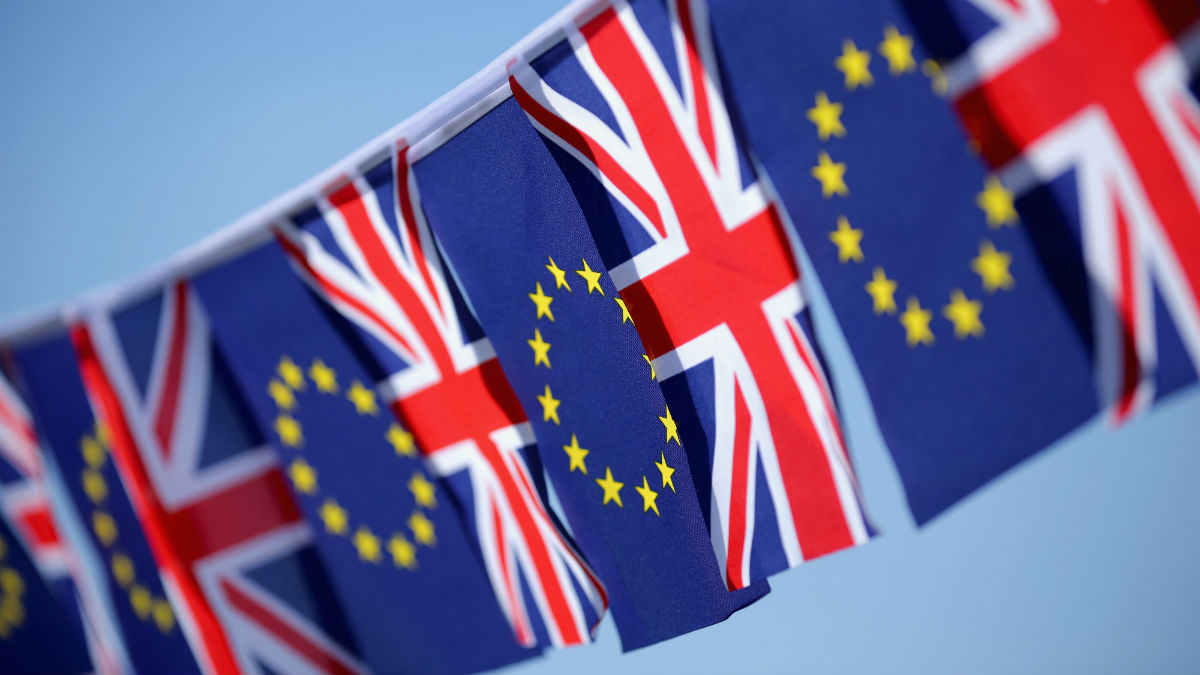How Brexit could affect your mortgage
First in a four-part series looking at the consequences if the UK voted to leave the European Union next month

A free daily email with the biggest news stories of the day – and the best features from TheWeek.com
You are now subscribed
Your newsletter sign-up was successful
When it comes to the housing market there are plenty of scare stories doing the rounds about how a vote to leave the EU could result in plummeting house prices and soaring mortgage rates, leading potentially to an all-out housing market crisis.
Is that just scaremongering or should we all be worried?
What has George Osborne said?
The Week
Escape your echo chamber. Get the facts behind the news, plus analysis from multiple perspectives.

Sign up for The Week's Free Newsletters
From our morning news briefing to a weekly Good News Newsletter, get the best of The Week delivered directly to your inbox.
From our morning news briefing to a weekly Good News Newsletter, get the best of The Week delivered directly to your inbox.
Chancellor George Osborne has been vocal about how he believes a vote to leave the EU would cause a housing market crisis.
He said at last month’s meeting of the International Monetary Fund (IMF) in Washington: "If you look at the view of the experts here at the IMF it’s pretty clear that if Britain votes to leave the EU then prices will go up and there will be instability in financial markets.
"What that means for families is that mortgage rates are likely to go up. In other words, it will be families paying the price if Britain votes to leave the EU."
Is he right?
A free daily email with the biggest news stories of the day – and the best features from TheWeek.com
The reasoning behind Osborne’s comments is that if we vote to leave the EU the economic uncertainty could lead to a fall in the value of the pound. This in turn would increase import costs and could lead to prices rising and inflation jumping, which could eventually force the Bank of England to hike interest rates.
An increase in interest rates would push mortgage rates up.
That is a long line of dominos that would have to fall, and many experts don’t think they would. For a start sterling would have to fall a long way before the Bank of England is likely to put up interest rates.
"You’d need to see the currency fall a very long way before that would become a big enough threat to the inflation outlook that the BoE would start to raise interest rates to the level that would start to cause problems," says Ed Stansfield, chief property economist at Capital Economics, in Mortgage Strategy.
History has also shown that the BoE is loath to put up interest rates even when inflation rises. Back in 2011 inflation went above five per cent, more than double the two per cent target. But the BoE didn’t move interest rates as it was viewed that a rise in interest rates would cause more problems than temporary high inflation.
Could mortgage rates actually fall?
Many experts believe a vote to leave the EU could actually lead to a fall in interest rates - at least in the short term. A poll by Reuters news agency last month found that most economists felt that interest rates would be cut in the aftermath of Brexit in order to counteract the shock to the economy.
“If the UK votes to leave the EU, then the Bank of England is likely to cut interest rates to 0.25 per cent, but also restart quantitative easing,” Azad Zangana, a senior economist at asset management firm Schroders, told The Guardian.
“I think the most likely scenario following a Brexit, if the Bank of England are going to do either a hike or a cut, is a cut to bolster domestic demand and support credit markets,” Kallum Pickering, senior UK economist at the bank Berenberg, said in The Guardian.
It's worth noting that Mark Carney, Bank of England governor, agrees with both Osborne and those suggesting rates will be cut. He believes a short-term cut to stimulate demand would be followed over a couple of years by steady rises to as high as three per cent.
It's unlikely rates would get to three per cent on current trajectories if the UK voted to stay.
What about house prices?
Chancellor Osborne has also stated that he believes a vote to leave the EU would lead to plummeting house prices. “If we leave the European Union, there will be an immediate economic shock that will hit financial markets,” Osborne told the BBC. “In the long term, the country and the people in the country are going to be poorer. That affects the value of people’s homes.”
The Treasury has published a paper saying that two years after a vote to leave UK house prices could be ten to 18 per cent lower than if we vote to remain.
Again, it is worth noting that Osborne has heavyweight support for his view from the likes of the IMF, ratings agencies Moody's and Fitch and the Centre for Economics and Business Research. But not everyone agrees.
“Forecasts suggest in the event of a Brexit the pound will fall 20 per cent. The Government says property prices will also fall, but if the pound falls by 20% the property prices also become 20 per cent cheaper to buyers in France, Italy and everywhere else, and demand will subsequently increase, creating an upward pressure on sales volumes,” says David Adams, managing director at property agent John Taylor UK, in the Evening Standard.
Among those who do think prices will fall, there are suggestions that this could be a good thing. Moody's said it would be a boon for first-time buyers who are currently being increasingly priced out of an overheated UK housing market.